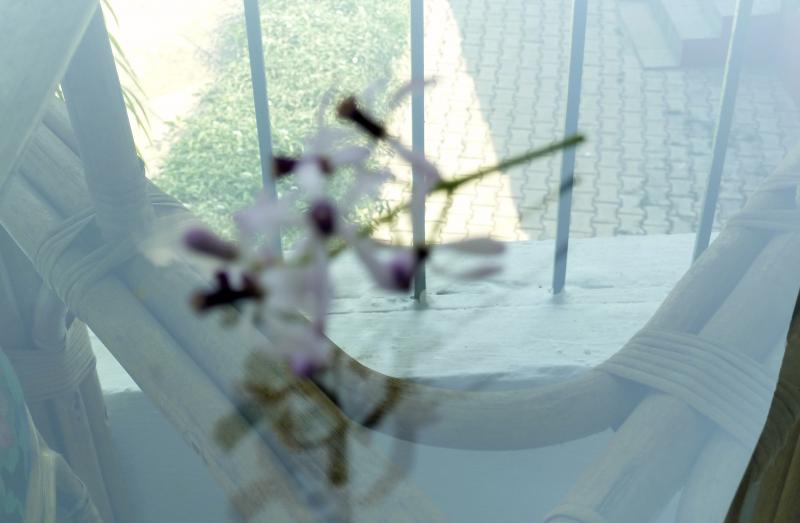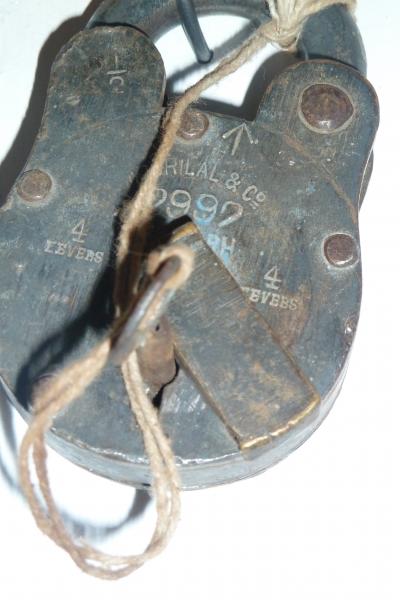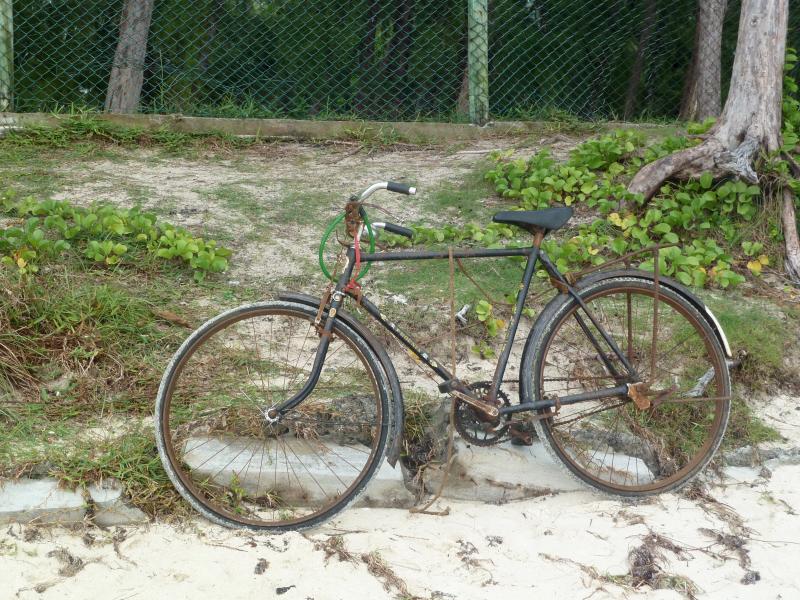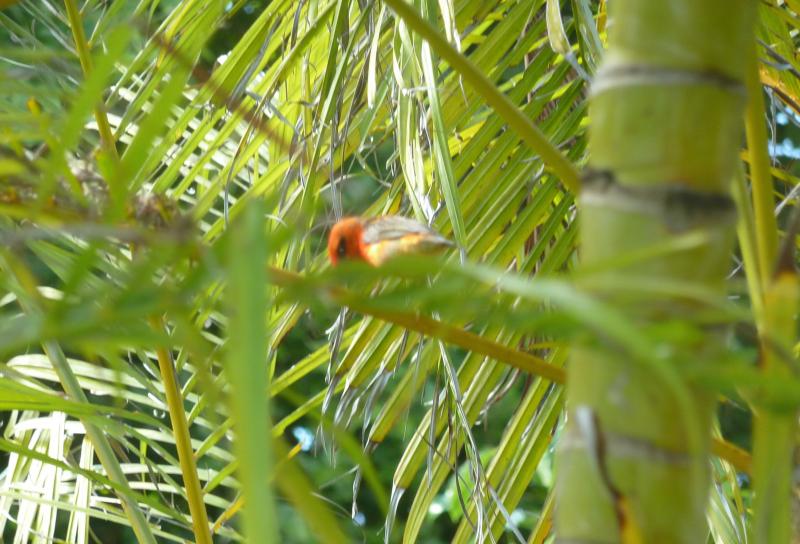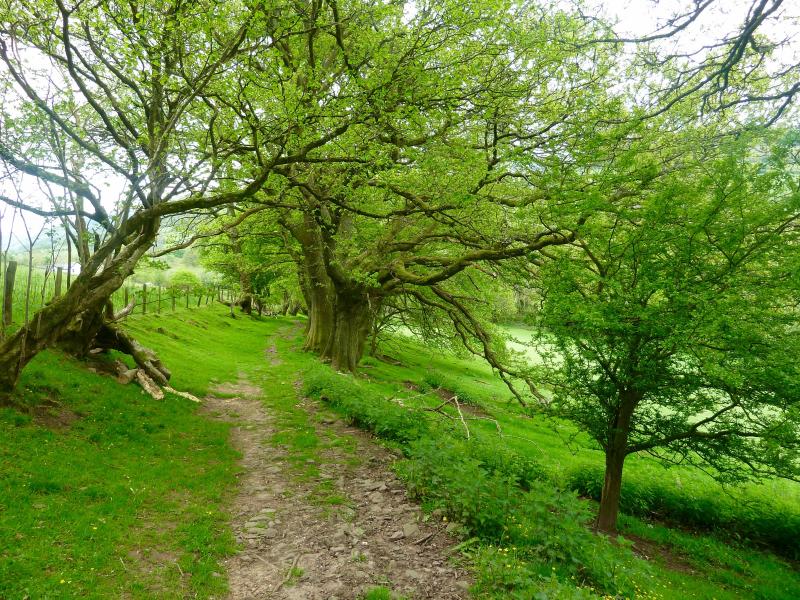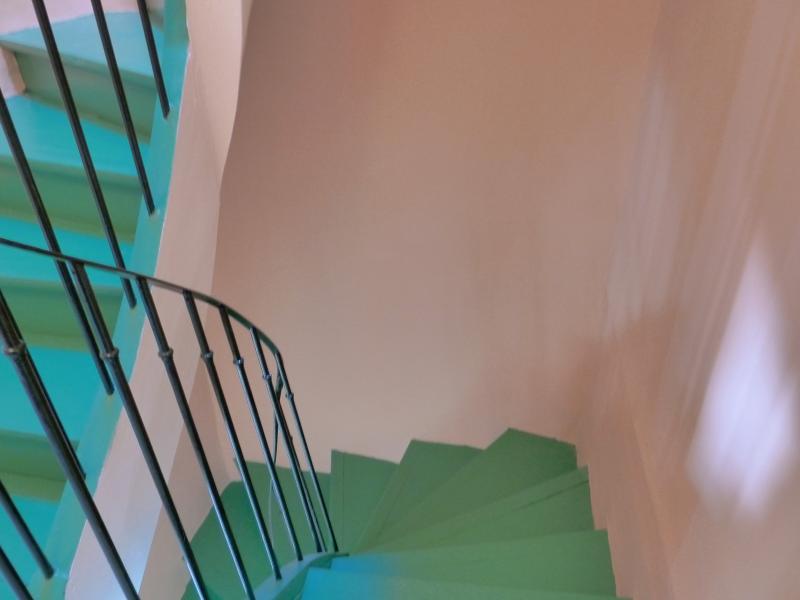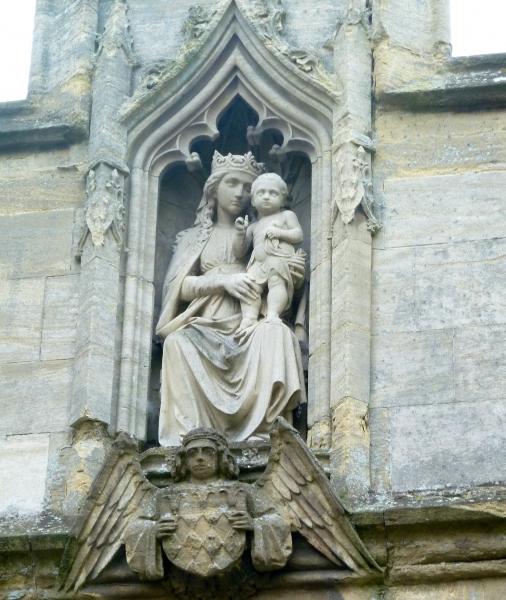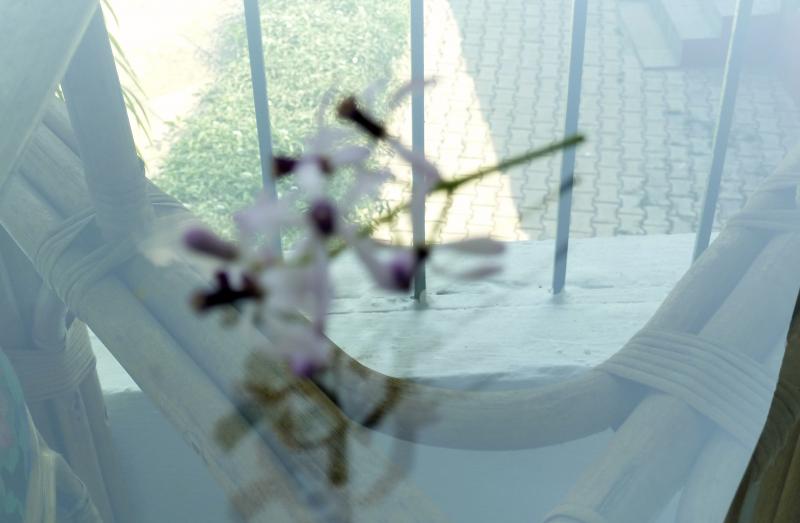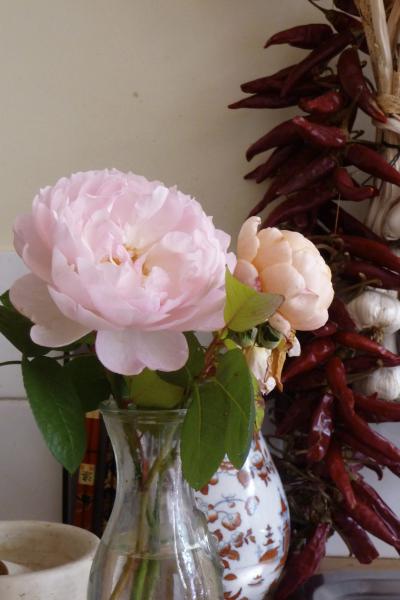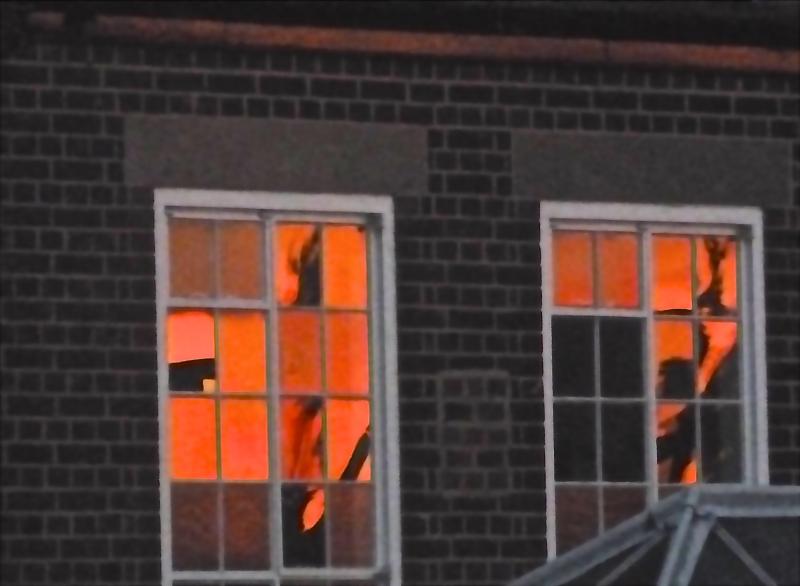This is not me bragging, but my entire life has skipped by with hardly an aspirin or at the most a paracetemol slipping down my gullet. Admittedly, there were the times I was laid low by Delhi belly, chicken pox in my thirties, a little breakdown after my divorce when I flushed the anti-depressants down the loo, the odd flu and a horrendous accident when I slammed into a stationary van outside Keble College and lay on the road sobbing with pain (nothing broken- just that I couldn’t serve at tennis anymore).
Then hubris struck, as it does. It was my loved-hated Delhi. The possibilities were dengue, chikangunya, or a boiling cauldron of viruses and bacteria but this thing from hell knocked me sideways for the best part of nearly three years. Extreme fatigue, brain fog (couldn’t read, write or do anything other than watch TV in a kind of stupor) and terrible debilitating pain down my left leg. I must admit I was terrified at the processes that might, or might not, one day lead to a diagnosis; I thought of it like crawling through wormholes. Everyone knows about patients neglected for days on trolleys, scans, x-rays, statins, cortisone, MRIs, endless tests. All these terms and frightening scenarios that were words, not really understood or digested, and I realized after a couple of consultations with my GP that diagnosis would certainly involve numerous trips down those wormholes.
Finally, in a bid to do something- anything- I took myself to a homeopath a two hour drive away and who patiently (and expensively) over 18 months worked on the baffling symptoms (Epstein Barr, M.E., TB, scarlet fever, meningitis, candida to name only a few). He used a machine which sent a electronic signal through various acupressure points in my hands and feet to vials containing fluids that corresponded to possible maladies. By means of homeopathic drops he proceeded to try and rid my system of the virus or bacteria one by one, until after many many months nothing remained, apart from the excruciating pain in my leg. The whole process cost a small fortune but was a lot better than endless hospital appointments. The homeopath was a very nice person, his consultation rooms were pleasant and welcoming and his dogs wagged their tails and didn’t bark.
However, I was still hobbling like a pantomime witch, and then no more than 800 yards without needing to sit down or lean against a wall.
Another 6 months went by during which I worked strenuously at the gym, swam, biked, did everything but admit it could be something other than sciatica. It was not sciatica. My hip, as the smooth London specialist (£250 for a 30 minute consultation) told me, was shot to pieces by arthritis. “It’s bone on bone. You need a new hip.”
What me? Complete disbelief. That only happened to other people. Old people, not people like me who could still pretend they were years younger than their actual age. My GP, a clever violin playing regular at the Oxford Chamber Music Festival, http://Oxford Chamber Music Festival https://ocmf.net, referred me to an assessment unit. First the person in charge tried to persuade me to have steroid injections and then gave in when I adamantly refused. She offered a choice of where I could go for the operation. I had been tipped off by a canny friend that The Manor, though private, took an NHS quota and where I would get a nice room on my own.
Thus began my experience of what happens in a hospital, what an operation is all about and how lucky one is to be treated in such a magnificent way – much of it free- under the NHS.
Luckily for me I have a most kind-hearted generous friend, Annie, who escorted me to the Manor Hospital on the day of the operation. I had fasted 12 hours and washed myself all over in a neon-pink disinfecting liquid to prepare and there I was at the place where the drama would take place, walking into what felt like a sauna. The five days of my stay at the hospital were the hottest in the entire summer. The temperature averaged 30C and the atrium design contained he heat so it rose to a stifling 45C. The windows did not open (“to stop patients from killing them selves “ said a chirpy Filipino nurse) but luckily my room and the other parts of the building were air conditioned. Somehow not being able to breathe fresh air made the experience even more weird and abnormal.
A youngish male nursing assistant who looked like Matt Lucas of Little England took my blood pressure. A few weeks back it had been alarmingly high but had dropped to normal. “Just lie back and relax until the surgeon is ready for you.” I lay on my bed and looked at a featureless hospital room, but beyond the windows that didn’t open, green boughs waved. The hour was upon me. I had kept myself in a state of not-being, suspending thought and sensation. Nothing existed beyond that moment, nothing existed outside the room. A trolley was wheeled in. It suddenly hit me that I was going to be cut up and sawed into, my muscles would be prised apart, foreign objects inserted with the aid of cement, a titanium rod stuck into my thigh bone . A proper invasion of my sentient body. I was in the hands of Fate, the anaesthetist and the surgeon. I might die on the operating table, be maimed for life, never be myself again.
And then you wake up and you are still alive and a kind nurse is holding your hand guiding you back to consciousness. I was overwhelmed with relief and a gratitude that I had come back home to my body. But the body I had known was a stranger with whom I had to re-acquaint myself. Bit by bit I explored what was still tenable and what I could still, even faintly, recognize as mine. The left operated side could not do anything, so I had to be helped to inch myself off the bed (with the nurse on duty holding my foot and my swollen leg), to hobble to the toilet, to sit up and take a few steps with a walker. Every foot forward was an adventure. The walker graduated to crutches and a few paces up and down the corridor, then to the sitting area and practicing the tiny movements prescribed by the physio- just moving my operated leg an inch to the side was agony. Nights were spent in one position (on my back) and luckily I was able to sleep with the help of pain killers (codeine and 8 paracetemol). Five days later I got in Annie’s yellow Honda to be driven to my new home in St Luke’s hospital.
The hospital, or care home for the elderly and those needing rehabilitation after operations, had recently been refurbished but for some reason I was given the most unattractive room on the ground floor. After complaining vigorously the matron found me a room in the new block which was comfortable and pleasant and where I had the advantage of really good nursing care, mainly from Nepali and Polish nurses. Their warmth and good humour were consistent and encouraged me back to normalization.
In the mornings I breakfasted on kefir and fruit (brought in by Annie) and solicitously carried from the ward kitchen on a tray to the common area, where I could eat upright at a dining table, seated on a pillow. Walking to it I couldn’t help seeing geriatric patients lying motionless on their beds most of the day and night. From one room came the sound of continuous Beethoven, probably provided by a relative. “Some patients have been here for years and never have a single visitor”, I was told. Others who were luckier sat and had tea in the common room before being wheeled back to their sad daily regime.
Suneeta, the Nepali nurse was married to a Gurkha. The couple had previously worked for a “Lord and Lady” in the Welsh borders and were now happily settled in Oxford, where there is a sizeable Nepali community. Many Nepalis run restaurants and food stalls where they sell momos, a close relative of Chinese dumplings. Ex-Gurkas and their families are particularly notable near Brecon, where they seem to have seamlessly integrated into the larger Welsh population. Remarkably too, many Nepali women are in professional careers, where they are valued for their stamina and good humour. This Christmas I saw one beautiful young thing waitressing, dressed in a green dirndl, at a traditional Bavarian restaurant near Munich. I guessed she was from Nepal by the small diamond studs in her ears. Suneeta even cooked me a goat curry (with organic meat from the Lord and Lady’s farm) and dal. I never got to taste it as someone in the hospital hierarchy either banned it or Suneeta was too worried about breaking the rules. Probably the latter, but I ignored the rules about outside food when I started ordering my evening meal via Deliveroo from various Thai restaurants in town. Great service that, if you tire of hospital food.

The cafe downstairs was a welcome distraction, with its cheerful staff and sweet potato fries. Two sisters came in to assist and I found that one of them had been at Cheney School with my godson. Another distraction was the garden, assiduously weeded by volunteer ladies in baggy cardigans and where I could step out and practise my walking, painfully slowly at first and then with a bolder stride as the days went by.

Two weeks of cautious leg bends, swings, walking without sticks between bars, lots of support from physiotherapists and nursing staff, smoothly running lifts, a bed that did what you instructed and letting the systemic anaesthesia peter out while my bruised and battered physique spluttered back into action, were worth the large bill. Back home I found I could negotiate the narrow stairs, right foot leading, step by step, hobble around the flat, get myself in and out of bed with the wire contraption that hooked around my left foot and slowly start coming off the painkillers.
Tiredness accompanied me like a faithful dog. However hard I tried I couldn’t shake it off. It was surprising that I could not “do” anything to conquer it: no amount of afternoon naps, taking things very easy, not making any demands on myself, changed the general slow pace of my hours. Each task took a long time and even short walks to town and back were taxing. I kept up my physio exercises and added a few yoga poses (not the surya namaskar- that was only possible much later). As soon as the Oxford Chamber Music ended I travelled to Kalamata and Kardimili in Greece, where I go every year in October. By now I was driving again, it was eight weeks after the operation and I was confident I would manage.

The stick embarrassed me. I was conspicuous by my infirmity. Tap tap tap like Long John Silver. Asking strangers at the beach for help to hobble to the water and reaching for hands to pull me out. A pebble beach is not the easiest to manoeuvre, but in a week I worked out how to do it all myself- throw towel down by water’s edge, walk into the sea, chuck back the stick, swim away revelling in the swell, backstroke trying to keep to a straight line (as if) and the freedom, the joy of using my limbs! Then emerge from the water on my bottom, inching my way backwards to the towel and feel the heat of the sun on the livid scar. The clean air, sea water, gentle walks and above all the healing sun knit my muscles as did the most generous and skilled massage from Vassiliki of the magic hands.

Week by week I was normalizing, walking further without pain, not needing naps, concentrating mentally, starting training at the gym, swimming and even going to London without great strain. Massage and bodywork have played a key role as has employing my new gained mobility- exercise has been vital.
What has astonished me more than once is how my physical needs took precedence over everything. Where I used to be rarely conscious of my body’s demands – apart from pushing myself too hard- the last three years my body has taken over my life. I must say I am now, happily, at a point where I am heartily sick of having to obey its whingeing and get on with other aspects of my existence. Before this happened to me I found others’ pain and disability baffling and inaccessible, but now I know how complex and difficult it is to deal with. Other people’s trials are hard to comprehend unless one has been there oneself.














